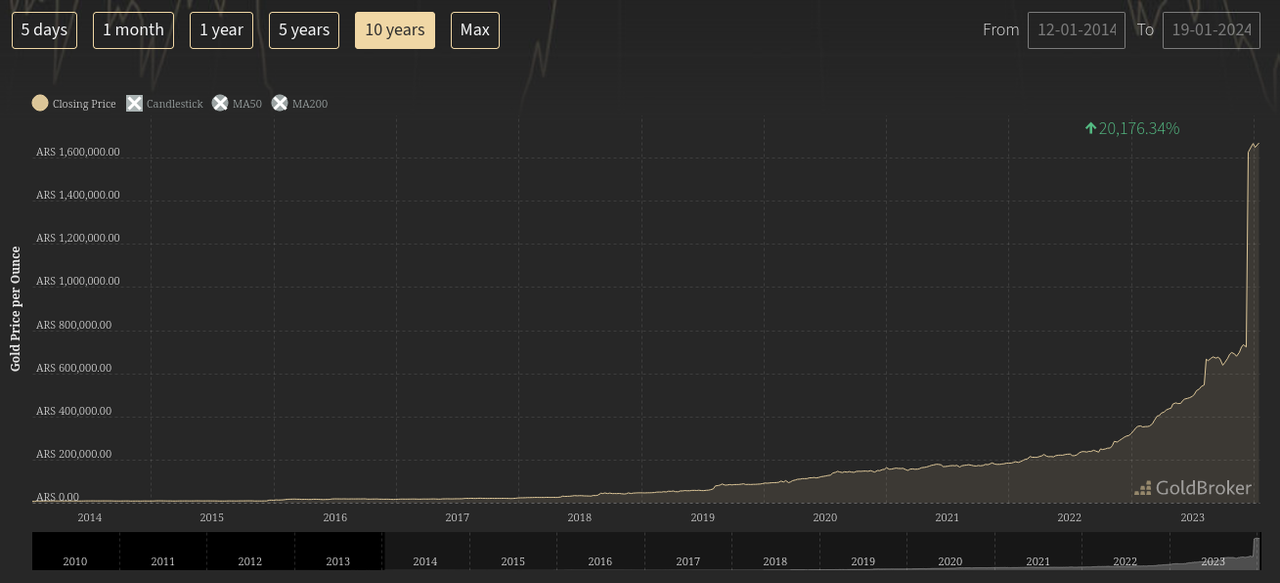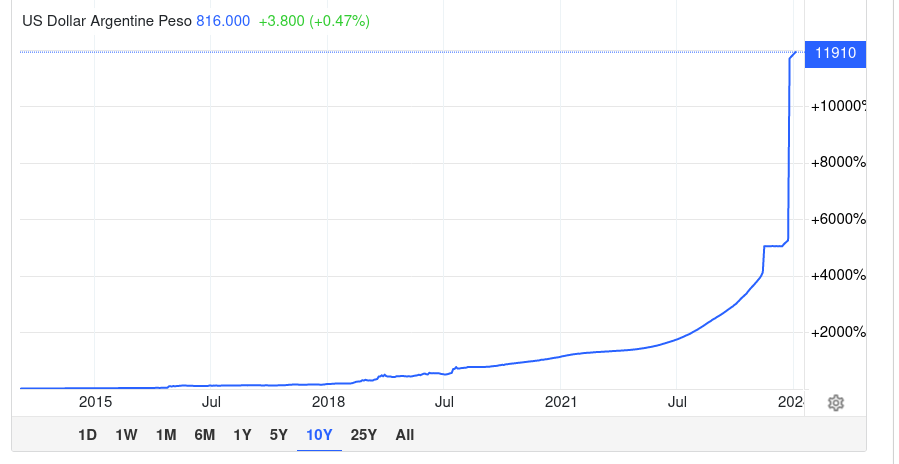I do not undestand the theory behind international PP at all
Posted: Sat Jan 13, 2024 1:43 pm
I have read the Permanent Portfolio book and I have been reading the forum for some time, specifically scouring threads related to international versions of the PP.
However, I still cannot understand why exactly wouldn't a standard US-based PP work for any person anywhere in the world provided they have a convenient way to invest in US securities and the local currency is freely and legally convertible. If the portfolio generates real returns, is it really important where those returns are to be spent, or whether the investor's local economy is in tune with the American economy?
Suppose an investor living in Ireland creates a standard US-based PP. Suppose the US is currently in the prosperity phase and US stocks are going up, while Ireland is in a deflationary recession. Why should this hypothetical investor care at all? He or she just does the exact same thing US-based PP investors do - rebalancing into the other three assets and enjoying the stability. Why does it matter whether the investor resides in the US, Ireland, Australia, Japan, Greenland, Antarctica, international waters or the Moon, as long as there's an access to American financial system and as long as the four asset categories perform as they are supposed to do?
I do understand the argument for keeping some cash in local currency as an emergency fund (although one might create an emergency fund separate from the PP, Boglehead-style). I also do think that depending on local circumstances, keeping all cash in short-term Treasuries might be not an optimal strategy for a non-US investor.
In fact, I believe the non-US PP portfolio wouldn't hold up as well as the classic one. The "equivalent" assets just aren't so.
For example, long term Treasury is not just another developing government bond. It is THE safe asset for the entire world. Even governments that somewhat defy American hegemony, such as Russia and China, still hold large amounts of Treasuries, because there's simply no alternative. Interest rate on US treasuries - not gilts, not JGBs, certainly not euro-denominated bonds - is considered THE risk free interest rate. Dollar is the reserve currency, the unit of account everyone else thinks in. Swiss bonds might be a slight exception (a justification for PRPFX franc allocation?), there is some flight into them every time European investors realize the euro doesn't make any sense, but nowhere near the same league.
In the same vein, US stocks aren't really a local market - they comprise more than a half of global public equities, including truly global companies that operate in the entire US-subservient world, which is most of it. In comparison, even most developed country markets just do not track the total market that well. What's the difference between an investor living in Alabama buying exclusively stock of companies headquartered in that state and an Australian investor investing exclusively on ASX? Both are buying a tiny sliver of global equity market based on arbitrary criteria.
Then there's gold. The way I see it, it's not really an "inflation hedge", it's an alternative reserve currency. As Harry Browne has said, it's the world's second favorite. Americans can get away with not understanding that difference, because they buy their groceries with the incumbent reserve currency. For everyone else it just doesn't work that way. Sure, if there's a sustained inflation in some non-dollar currency, the nominal price of gold will go up - but so will the price of silver, commodities, artworks, real estate, vehicles and everything else. For gold to produce real returns, dollar's global reserve status must be perceived as threatened in some way. This is why central banks overwhelmingly hold USD and gold - there are no other real contenders.
If, say, euro was to crash, most of it's value would go to the dollar, with maybe modest real gains for gold (and CHF, vindicating Mr. Cuggino's approach?). An European investor holding a suggested "EU-PP" would lose between 50% and 75% of his investment in that scenario, because real return from gold wouldn't compensate the losses on euro-denominated cash and bonds at all. It would just keep its purchasing power, which is not enough if the portfolio is supposed to be permanent. Gold only makes sense in PP context as a counterweight to dollar-denominated bonds and bills, in other words as a hedge against the collapse of American empire.
I hope my post is not too long, and that it didn't come off as confrontational. The Permanent Portfolio book is very good and I've enjoyed it a great deal. It's just that one aspect of it that made no sense to me and that seems to originate from some kind of American un-exceptionalism. I'd be happy to be proven wrong, or at least to start an interesting discussion.
However, I still cannot understand why exactly wouldn't a standard US-based PP work for any person anywhere in the world provided they have a convenient way to invest in US securities and the local currency is freely and legally convertible. If the portfolio generates real returns, is it really important where those returns are to be spent, or whether the investor's local economy is in tune with the American economy?
Suppose an investor living in Ireland creates a standard US-based PP. Suppose the US is currently in the prosperity phase and US stocks are going up, while Ireland is in a deflationary recession. Why should this hypothetical investor care at all? He or she just does the exact same thing US-based PP investors do - rebalancing into the other three assets and enjoying the stability. Why does it matter whether the investor resides in the US, Ireland, Australia, Japan, Greenland, Antarctica, international waters or the Moon, as long as there's an access to American financial system and as long as the four asset categories perform as they are supposed to do?
I do understand the argument for keeping some cash in local currency as an emergency fund (although one might create an emergency fund separate from the PP, Boglehead-style). I also do think that depending on local circumstances, keeping all cash in short-term Treasuries might be not an optimal strategy for a non-US investor.
In fact, I believe the non-US PP portfolio wouldn't hold up as well as the classic one. The "equivalent" assets just aren't so.
For example, long term Treasury is not just another developing government bond. It is THE safe asset for the entire world. Even governments that somewhat defy American hegemony, such as Russia and China, still hold large amounts of Treasuries, because there's simply no alternative. Interest rate on US treasuries - not gilts, not JGBs, certainly not euro-denominated bonds - is considered THE risk free interest rate. Dollar is the reserve currency, the unit of account everyone else thinks in. Swiss bonds might be a slight exception (a justification for PRPFX franc allocation?), there is some flight into them every time European investors realize the euro doesn't make any sense, but nowhere near the same league.
In the same vein, US stocks aren't really a local market - they comprise more than a half of global public equities, including truly global companies that operate in the entire US-subservient world, which is most of it. In comparison, even most developed country markets just do not track the total market that well. What's the difference between an investor living in Alabama buying exclusively stock of companies headquartered in that state and an Australian investor investing exclusively on ASX? Both are buying a tiny sliver of global equity market based on arbitrary criteria.
Then there's gold. The way I see it, it's not really an "inflation hedge", it's an alternative reserve currency. As Harry Browne has said, it's the world's second favorite. Americans can get away with not understanding that difference, because they buy their groceries with the incumbent reserve currency. For everyone else it just doesn't work that way. Sure, if there's a sustained inflation in some non-dollar currency, the nominal price of gold will go up - but so will the price of silver, commodities, artworks, real estate, vehicles and everything else. For gold to produce real returns, dollar's global reserve status must be perceived as threatened in some way. This is why central banks overwhelmingly hold USD and gold - there are no other real contenders.
If, say, euro was to crash, most of it's value would go to the dollar, with maybe modest real gains for gold (and CHF, vindicating Mr. Cuggino's approach?). An European investor holding a suggested "EU-PP" would lose between 50% and 75% of his investment in that scenario, because real return from gold wouldn't compensate the losses on euro-denominated cash and bonds at all. It would just keep its purchasing power, which is not enough if the portfolio is supposed to be permanent. Gold only makes sense in PP context as a counterweight to dollar-denominated bonds and bills, in other words as a hedge against the collapse of American empire.
I hope my post is not too long, and that it didn't come off as confrontational. The Permanent Portfolio book is very good and I've enjoyed it a great deal. It's just that one aspect of it that made no sense to me and that seems to originate from some kind of American un-exceptionalism. I'd be happy to be proven wrong, or at least to start an interesting discussion.

